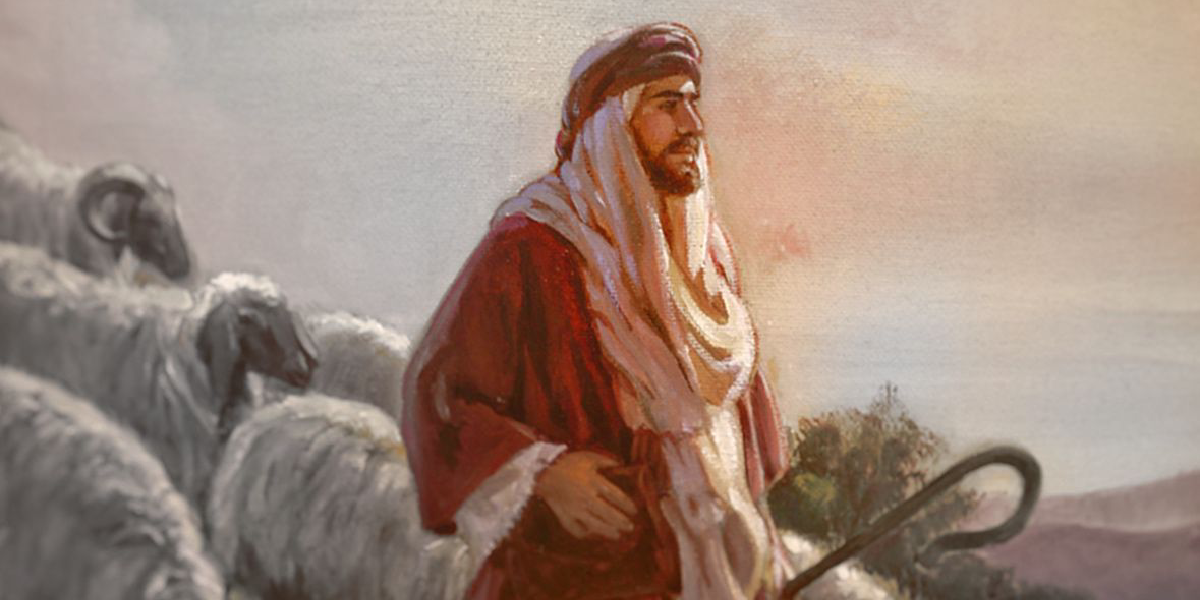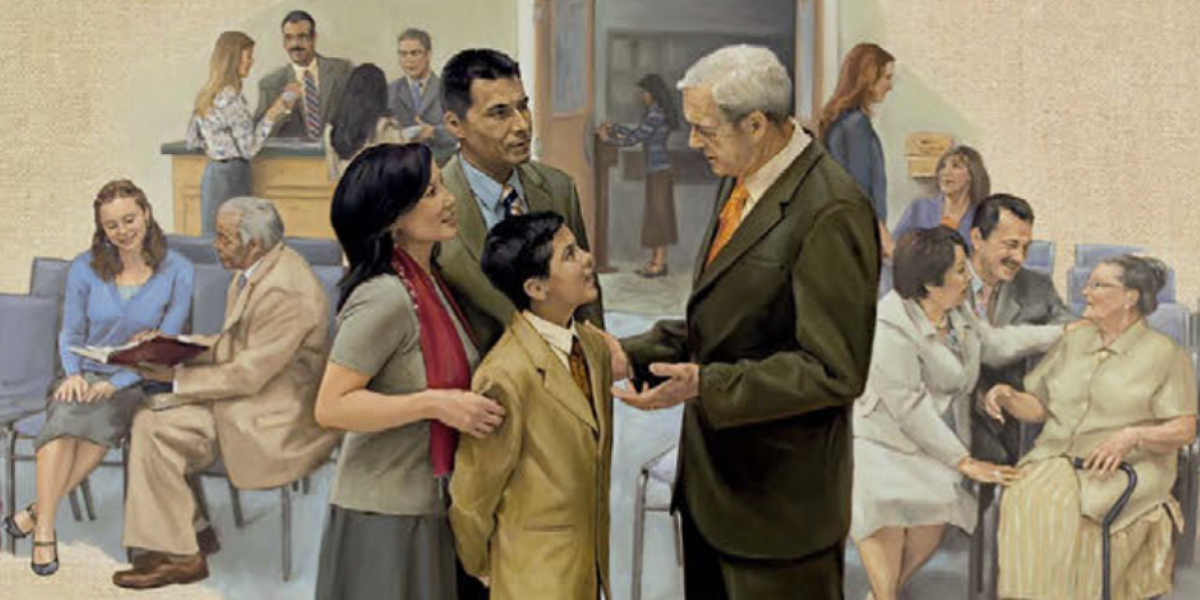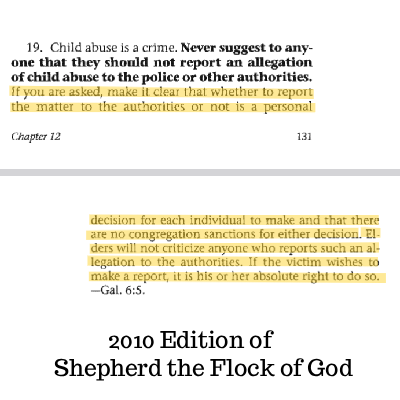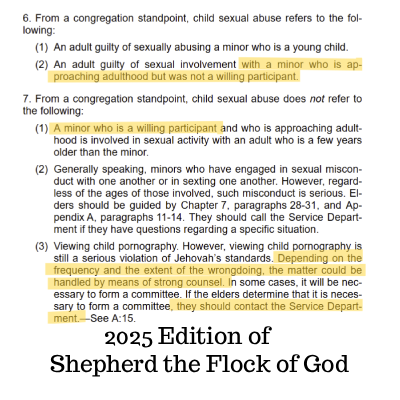More than 11 years revealing secrets because there is no excuse for secrecy in God’s true religion – The Watchtower, June 1st 1997; Dan 2:47; Matt 10:26; Mark 4:22; Luke 12:2; Acts 4:19, 20.

Shepherd the Flock of God — 1 Peter 5:2 Manual, 2025
Written and Published by: Miss Usato on September 14th, 2025
Behind the closed doors of every Jehovah’s Witnesses congregation lies a secret manual only for elders’ eyes: Shepherd the Flock of God. Far from a simple guide, this manual dictates how lives are judged, how sins are punished, and how silence is enforced. On September 1st, 2025, a new version of this manual was released to elders (and leaked to advocates such as ourselves).
This article delivers an honest breakdown of its hidden rules and the fear they create. Blue links are provided to the manuals by the year it is quoted from.
PLEASE BE AWARE: TRIGGER WARNING
The Hidden Obsessions of “Shepherd the Flock of God”
In the “Shepherd the Flock of God,” (STFOG) elders are given detailed instructions for convening judicial committees. These are panels of three or more men, often middle-aged or elderly, tasked with investigating the private sexual behavior of young people, some barely into adulthood.
On paper, Appendix A reads like a clinical policy guide. But the reality is far more troubling. It assigns older men the role of interrogators over intimate, often graphic details of the lives of much younger members. This dynamic is not just awkward; it represents a profound breach of healthy boundaries.
The manual devotes page after page to dissecting sexual acts: oral sex, anal sex, masturbation, voyeurism, sexting, “manipulation of genitals,” and more. The level of description is exhaustive. That such detail is catalogued at all suggests less an act of pastoral care and more an institutional fixation.
This creates what can only be described as a system of institutional voyeurism. Elders are instructed to “establish facts” and weigh circumstantial evidence, such as whether a young person spent the night in someone else’s home. In practice, this often means older men probing into humiliating and invasive details of younger members’ private lives. The resulting power imbalance is immense, particularly for young women or newly baptized teenagers, who are placed before a closed panel with no advocate present.
Even more concerning is the contrast in priorities. The manual devotes far more space to categorizing and policing consensual sexual behavior than it does to addressing child sexual abuse. While the former is detailed in graphic terms, the latter is treated in comparatively clinical, reserved language, emphasizing legal considerations rather than moral duty.
The imbalance speaks volumes
What emerges is a system that normalizes shame. Natural sexual development is labeled “unclean” or “brazen.” Young people, taught to pathologize their own impulses, often end up confessing to elders in deeply embarrassing detail.
Courtney – Former Witness, Minnesota, U.S.A. – “Oh, I am not the only one. I’ve heard about this probably hundreds of times from my friends. It’s happened to me twice. The first time I got in trouble for making out with my boyfriend, also a witness. The elders pulled me into the back of the room and asked me VERY intrusive questions about how much tongue we used, where we touched each other, and their decision affected our stance in the congregation. The second time we made out, I felt so bad that I had done it again that I actually “Turned myself in” and again, the embarrassing questions were asked.”
This kind of cruel intrusiveness fuels a cycle of guilt, confession, discipline, and renewed dependence on the congregation. The structure ensures compliance while perpetuating feelings of unworthiness.
Outside of a religious context, such practices would be unthinkable. If a secular youth worker interrogated a teenager about masturbation, oral sex, or sleeping arrangements, they would risk disciplinary action—or even criminal charges for abuse of authority. In most safeguarding frameworks, the kind of closed-door questioning described in this manual would constitute institutional abuse.
And yet, because it operates under the banner of religion, the practice is normalized. Elders, older men with the power to expel, socially isolate, or even separate young people from their families, are positioned as moral arbiters of intimate life. It is a system that, by any external standard, would be classified as coercive control.
So, tell me, would you feel safe, let alone in God’s ways, if your siblings, parents, or children were governed in this manner? How would you feel if you knew one of them was an elder complying with these rules? The following breaks down some specific topics that have changed throughout the years.
An excessive and disgusting focus on sexual conduct

The STFOG manual devotes extensive space to detailing sexual acts and categorizing them as disciplinary offenses. The sheer level of description, from masturbation to sexting, suggests a fixation that feels disproportionate when compared to other areas of congregational life, rather than fostering a healthy, compassionate conversation about sexuality, the manual frames it as a series of infractions to be monitored and punished. The biggest problem to remember of all is that most of these points do not include reaching out to secular authorities, and these federal crimes against children are simply overlooked by the service department. Even after someone commits one of these sins, they can easily be reinstated within 3 months.
Sexual Immorality (“Porneia”) definitions
The 2019 and 2020 editions in STFOG define “sexual immorality (porneia)” as involving “immoral use of the genitals”, whether in a natural or perverted way; it explicitly lists acts like oral sex, anal sex, and manipulation of the genitals between people not married to each other. As if it is their business. Quoted in the 2025 edition: “Sexual immorality requires willing participation. One who was raped would not be guilty of sexual immorality. Elders need discernment when considering claims of rape.” So they will ask you questions and investigate themselves, before ever going to the authorities if they know abuse or rape was involved.
Sexting and sexual conversations over the internet/phone
The 2020 edition includes “immoral conversations over the telephone or the Internet, including sexting” among examples that may require the formation of a judicial committee, depending on frequency, severity, and other factors. Quoted from the 2025 edition, that generally says the same: “Sexting can involve obscene speech or gross uncleanness. Counsel from two elders may suffice if such conduct occurred on a
few isolated occasions.”
Child abuse, pornography, and sexting with minors
Child abuse sections (e.g. Chapter 14 in 2019 & 2020) list “sexual intercourse with a minor; oral or anal sex with a minor; fondling of the genitals, breasts, or buttocks of a minor; voyeurism… indecent exposure… soliciting a minor… sexting with a minor.” These sections are quite detailed in describing what constitutes abuse and what kinds of sexual behavior are subject to scrutiny. In the 2025 addition regarding child pornography (shown below, middle photo (3)), it states that child pornography, “though serious,” getting involved in discussing the sin depends on how frequently and to what extent they watch it. There is no mention of contacting the police, even though this is a serious crime. Just their service department. So the elders will actually investigate and ask you questions, and decide your fate.
Masturbation: Quoted from the 2021 STFOG: “The body of elders should consider: What type of pornography was viewed? Did the viewing of pornography consist of a few brief incidents, or was it a practice spanning many months, or even years? Was the viewing of pornography accompanied by masturbation?” Other manuals say the same about the matter. In the 2025 edition: “Masturbation of oneself is not sexual immorality.” This is different from the past manuals, where masturbation was a big deal; now they are downplaying it..
“Gross uncleanness” and “uncleanness with greediness”
Earlier versions list many acts under these categories, some of them sexual (touching, intimate body contact, etc.), noting that certain behavior, repeated or escalating, may require judicial action. Again, this is by these elders investigating what you exactly did. This means sexual acts will be questioned even if both adult parties are consenting.
Brandi -Former Witness, Washington, U.S.A –“When I read this manual on the subreddit ExJW, I bawled my eyes out. The extent to which I had to explain my sin, having sex, still sends shivers down my spine. After looking back at the shame, pain, and terror I felt telling Elders who knew me as a child, asking me sexual questions so in depth that I couldn’t breathe when I uttered the words.. They should be ashamed of themselves. They were trained to do this.”
Reporting Abuse to Authorities
One of the most revealing aspects of the Jehovah’s Witnesses’ secret elder manual, Shepherd the Flock of God (STFOG), is how it instructs elders to handle allegations of child sexual abuse. The book has gone through multiple editions since 2010, and while the wording has shifted slightly over the years, the underlying framework has remained the same: confidentiality first, loyalty to the organization, and legal compliance only when unavoidable. The Elders are instructed to maintain confidentiality when handling “sins,” including serious ones, unless directed otherwise by law. The manual consistently frames elders’ duty as primarily to the congregation and Jehovah, not secular authorities. In multiple editions, it emphasizes contacting the branch office (JW headquarters in New York) first before taking action, even in sensitive matters like child abuse.
2010 Edition: Elders were told not to report unless required by law. If asked, they were to explain that whether or not to report was a “personal decision.” No congregation sanctions would be applied against someone who went to the police, and reporting was framed as the “absolute right” of the victim. But elders themselves had no moral or spiritual duty to alert authorities.
2019 & 2020 Editions: The tone softened slightly. Elders were instructed that anyone making an allegation should be “clearly informed that they have the right to report the matter to the secular authorities.” Elders were also reminded not to criticize those who did. Still, the first call for elders was to the branch office, and the duty to report remained strictly tied to legal requirements—not spiritual responsibility.
2021 Edition (seen in NZ Inquiry): Adds slightly stronger wording, acknowledging mandatory reporting and encouraging elders to avoid obstructing secular investigations. However, it still frames secular reporting as a legal obligation, not a moral or spiritual duty. Also in the 2021 edition: “When discussing child sexual abuse from a congregation standpoint, we are not considering a situation in which a minor who is a willing participant and who is approaching adulthood is involved in sexual activity with an adult who is a few years older than the minor. Nor, generally speaking, are we discussing situations in which only minors are involved.” This sounds like they are creating a loophole regarding if a child “consents” to the sexual acts, which is a different matter. It truly is disgusting. As Prosecutor Werner said in the Sheffer Case of the Pennsylvania Grand Jury into sexual abuse and Jehovah’s Witnesses 01/2025, to which she won, sending the abuser to prison- “CHILDREN CANNOT CONSENT, THEY ARE CHILDREN.”
Higher Education
Regarding Higher Education, in the 2021 STFOG: “He or a Member of His Household Pursues Higher Education: If an appointed brother, his wife, or his children pursue higher education, does his life pattern show that he puts Kingdom interests first in his life? Does he teach his family members to put Kingdom interests first? Does he respect what has been published by the faithful slave on the dangers of higher education? Do his speech and conduct reveal that he is a spiritual person? How is he viewed by the congregation? Why is he or his family pursuing higher learning? Do they have theocratic goals? Does the pursuit of higher education interfere with regular meetings attendance, meaningful participation in field service, or other theocratic activities?
This has since been removed from the 2025 STFOG. On August 22nd, 2025, Governing Body member David Splane stated on a JW broadcasting update that additional education is a personal choice. You can find this information here: The Governing Body Reframes Education as a Personal Choice
Examples of changes in the manual



Reporting abuse should not be a “personal decision”
One of the most revealing aspects of the Jehovah’s Witnesses’ secret elder manual, Shepherd the Flock of God (STFOG), is how it instructs elders to handle allegations of child sexual abuse. The book has gone through multiple editions since 2010, and while the wording has shifted slightly over the years, the underlying framework has remained the same: confidentiality first, loyalty to the organization, and legal compliance only when unavoidable. The Elders are instructed to maintain confidentiality when handling “sins,” including serious ones, unless directed otherwise by law. The manual consistently frames elders’ duty as primarily to the congregation and Jehovah, not secular authorities. In multiple editions, it emphasizes contacting the branch office (JW headquarters in New York) first before taking action, even in sensitive matters like child abuse.
2010 Edition: Elders were told not to report unless required by law. If asked, they were to explain that whether or not to report was a “personal decision.” No congregation sanctions would be applied against someone who went to the police, and reporting was framed as the “absolute right” of the victim. But elders themselves had no moral or spiritual duty to alert authorities.
2019 & 2020 Editions: The tone softened slightly. Elders were instructed that anyone making an allegation should be “clearly informed that they have the right to report the matter to the secular authorities.” Elders were also reminded not to criticize those who did. Still, the first call for elders was to the branch office, and the duty to report remained strictly tied to legal requirements—not spiritual responsibility.
2021 Edition (seen in NZ Inquiry): Adds slightly stronger wording, acknowledging mandatory reporting and encouraging elders to avoid obstructing secular investigations. However, it still frames secular reporting as a legal obligation, not a moral or spiritual duty. Also in the 2021 edition: “When discussing child sexual abuse from a congregation standpoint, we are not considering a situation in which a minor who is a willing participant and who is approaching adulthood is involved in sexual activity with an adult who is a few years older than the minor. Nor, generally speaking, are we discussing situations in which only minors are involved.” This sounds like they are creating a loophole regarding if a child “consents” to the sexual acts, which is a different matter. It truly is disgusting. As Prosecutor Werner said in the Sheffer Case of the Pennsylvania Grand Jury into sexual abuse and Jehovah’s Witnesses 01/2025, to which she won, sending the abuser to prison- “CHILDREN CANNOT CONSENT, THEY ARE CHILDREN.”

What results from this type of doctrinal, controlling dynamic in the congregations is not pastoral care but institutional control. Young people grow up pathologizing natural impulses, confessing in detail to elders behind closed doors, and entering a cycle of shame and dependence. Outside the shield of religion, this setup would be recognized as coercive control and institutional abuse.
The secrecy of this manual is no accident. Its content would be indefensible in any secular setting. Yet for Jehovah’s Witness elders, it remains the quiet backbone of authority: a rulebook that says far more about control than about care.